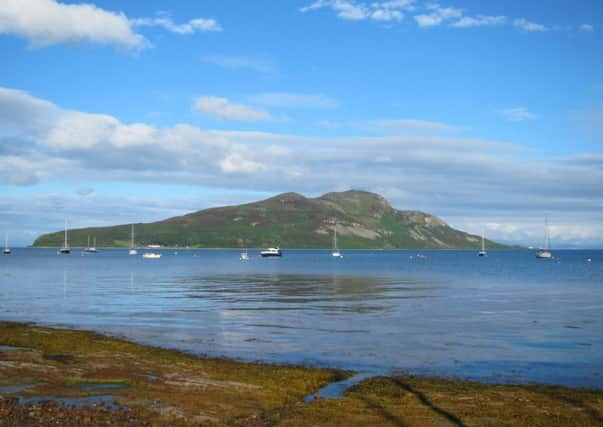Scottish marine reserve boosts scallop population


Scientists have discovered a “much higher” abundance of commercially important juvenile scallops inside Lamlash Bay over a period of three years. The size and reproductive capacity of adult scallops was also found to be much higher, according to scientists from the University of York.
Dr Leigh Howarth, who conducted the research in the environment department at York, said: “We found strong evidence that protecting Lamlash Bay from fishing has allowed seaweeds, hydroids and other organisms on the seafloor to recover.
Advertisement
Hide AdAdvertisement
Hide Ad“These animals act as a magnet for settling juvenile scallops which seek out these habitats for shelter and to mature to adulthood. Our study shows that protecting some areas from fishing activity can benefit both conservation and fisheries.”
The Lamlash Bay marine reserve was created in 2008, following a decade-long campaign by the local Community of Arran Seabed Trust (Coast).
The new study, published in Marine Biology, reports on monitoring surveys conducted inside and outside the reserve from 2010 to 2013.
Marine reserves, where fishing and other activities are restricted, aim to allow natural ecosystems to recover and flourish, and the scientists say the Arran reserve, which covers almost three square kilometres, is proving to be a success. The resultant high level of breeding within the reserve, they claim, is likely to be seeding the surrounding fishing grounds.
Fisheries for king and queen scallops have become some of the most important in the UK, generating more than £60 million a year. The industry has grown dramatically over the past decade, but scientists have raised concerns over the damage to the seabed caused by the dredges and trawls which are normally used to catch them.
Both the English and Scottish governments have recently declared networks of marine protected areas (MPAs) around their coasts and are currently deciding on how to manage them. However, there are concerns that the preferred option of both governments is to do little to actually restrict fishing within these MPAs.
Dr Bryce Stewart, who supervised the study, said: “Scallop fisheries are ideally suited to management using protected areas.
“This approach can protect sensitive habitats, which also act as nursery grounds for scallops and other species, while boosting the overall productivity of the fisheries.
Advertisement
Hide AdAdvertisement
Hide Ad“We urge the UK governments to create more highly protected areas which can provide this win-win scenario for the management of our oceans.”
FOLLOW US
SCOTSMAN TABLET AND MOBILE APPS